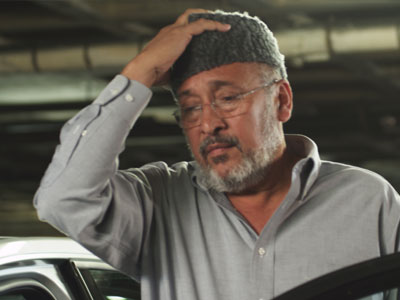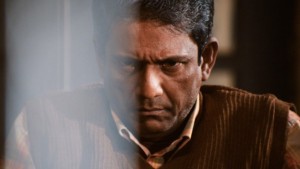Indian filmmaker Raj Amit Kumar brings two seemingly unrelated tales of violence and intolerance into one film.
By Sara Almalla, Staff Writer
New Delhi and New York may seem like worlds apart, but writer and director Raj Amit Kumar has brought them together in the heart-wrenching and shocking film, “Unfreedom.”
Shifting between the two cities, the film follows two stories: one of a Muslim terrorist who kidnaps a liberal Muslim in an attempt to silence him, the other of a Hindu woman who kidnaps the woman she is in love with in hopes of marrying her. Kumar unveils terrifying realities of both being queer in India and of the religious fundamentalism that is so troublesome in modern society.
“Unfreedom” was banned in India because it was deemed too controversial and the censor board worried it would “ignite unnatural passions”, but Kumar believes it was more than that.
“I think what it could be is that the moral authorities in India are not able to digest what the film is trying to say and how it is trying to say it,” says the auteur by phone. “The film takes a look at what is wrong in our world and rather than keeping it neutral, it showcases that reality in front of us and I think that’s what the Indian censorship and authorities are not able to digest.”
He says, rather than aiming at any particular audience, he was more concerned with a specific theme:
“I think I was addressing certain themes that are important to everybody, not just in New York or New Dehli, but anywhere in the world. So no, I was not targeting any specific audience or a specific demographic per say. I think it’s an important study for everyone to know about.”
Kumar did not want the film to be simply about one violent circumstance, but the concept of violence in general, “I wanted to make a film about identity and violence, so if I would have picked one particular identity in one particular location, then the film would have become that particular issue, so it was important for me to pick different identities and geographies and construct parallel characters and events and try to get to the more important question of violence and where it comes from.”
Many aspects of the film tread on controversial topics- violence and intolerance when it comes to religion is a touchy subject and Kumar knew the film would be controversial when he wrote it, but believes those reactions are what make the movie a success.
“I was aware that this was a film that would divide the audience,” he says. “Either people would fall passionately in love with the film or they would just hate it. So I was aware of that, and even after the film has been made, that has been the reaction of the audience. And that feels good because you feel that you made a film that was impactful- you know, one way or another, it’s an experience that really hits home.”
The New Delhi storyline addresses the sad reality of the lack of LGBT+ rights in India, a cause to which Kumar is dearly devoted.
“The fight for LGBT rights in India is very important and needs to be more addressed. How can we, in today’s world, agree and accept that in a country like India, homosexuals are illegal? How can we accept that? To me, its just nonsense! Completely regressive and absurd. And I guess, at least in my eyes, most Indians would not agree with that, it’s just certain extremists groups who are holding control.”
Kumar is currently working on two new projects. The first is titled “Black Boots” and follows the stories of the first black marines during World War II “whose stories were never told— amazing stories of courage and racism.” The second project is “Ayodhya,” which tells the story of the religious war over the sacred city of Ayodhya.



